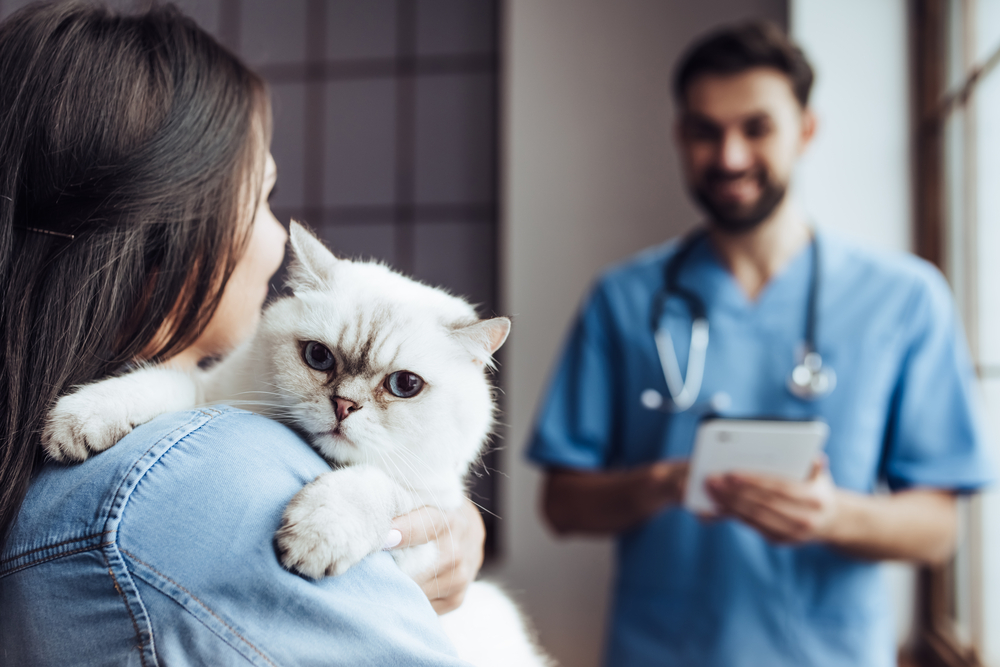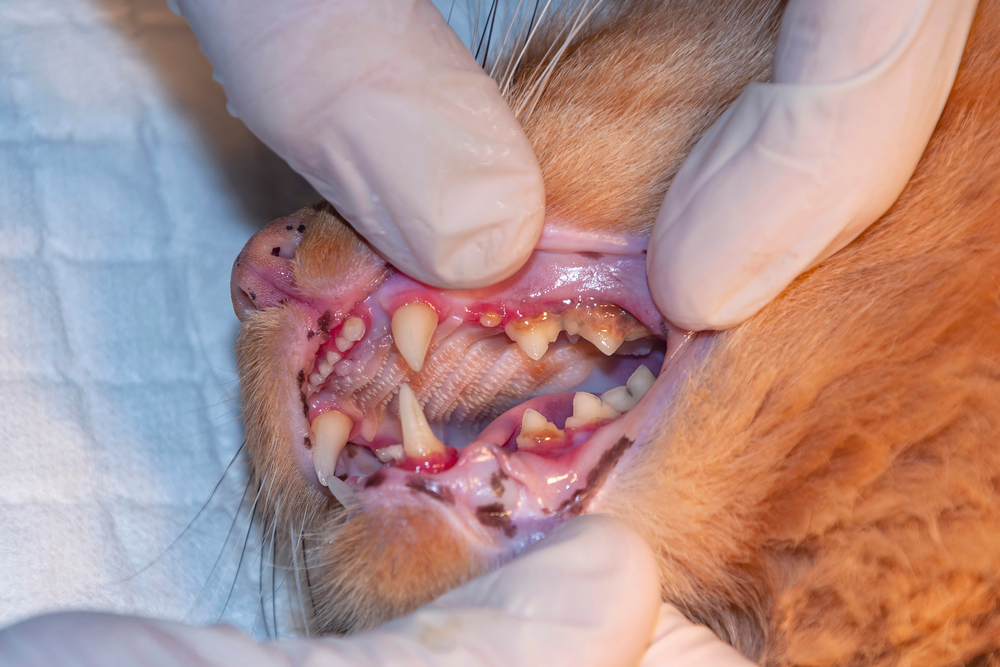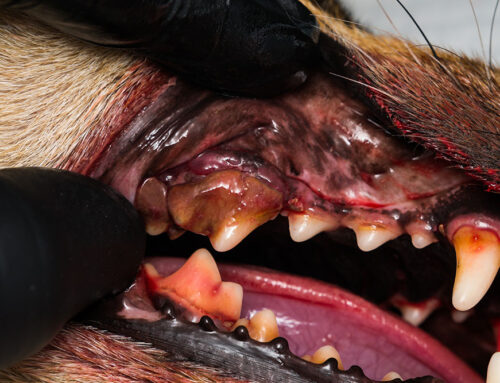Think back to the last time you had a sore spot inside your mouth from a burn, ulcer, or the dreaded cheek bite. The smallest mouth injury causes significant pain for most people, and the same holds true for pets. Cats with feline chronic gingivostomatitis (FCGS) develop painful ulcers on most of their oral tissues because of a faulty immune system. The North Bay Veterinary Dentistry team knows this condition requires aggressive treatment to reduce pain and restore quality of life, and we want every cat owner to know about FCGS and how our team can alleviate your furry pal’s pain.
What is feline chronic gingivostomatitis?
FCGS is a chronic auto-immune disorder affecting cats. For complex, mostly unknown reasons, some cats develop an exaggerated immune response to normal plaque and bacteria on the teeth. Instead of simple gingivitis, which cats typically develop when they have dental disease (i.e., periodontal disease), cats with FCGS suffer inflammation and ulcerations throughout their oral tissues that can be concentrated mostly around teeth, but can also spread to the back of the mouth, lips, cheeks, and under the tongue. Oral ulcerations are extremely painful, and cats with FCGS often lose weight, because eating is so painful.
Is my cat at risk for feline chronic gingivostomatitis?
Researchers aren’t sure why FCGS occurs, so predicting which cats will develop the disease is challenging. The average onset in cats is around age 7, but cats of any age, sex, or breed can be affected. The main risk factors include common viral infections that impact immune system functioning (e.g., feline immunodeficiency virus (FIV), feline leukemia virus (FeLV)), and household stress. Many cats who develop FCGS have no apparent underlying risk factors. Research into other potential factors, including diet and oral microbiome, is ongoing.
How do veterinarians diagnose feline chronic gingivostomatitis?
Diagnosing FCGS is relatively simple, because most veterinarians recognize the characteristic inflammation during an awake or anesthetized oral examination. Affected cats also find chewing and swallowing difficult, and may lose weight because the pain prevents them from eating enough. A questionable diagnosis can be confirmed by a biopsy sample.
While the following tests do not help with a diagnosis, they are recommended for all FCGS cats to determine if a virus or other problem is impacting their disease:
- Complete blood count
- Blood chemistry profile
- Thyroid level
- Urinalysis
- FIV/FeLV testing
How do veterinarians treat feline chronic gingivostomatitis?
FCGS inflammation causes moderate to severe pain and can be difficult to control, and therefore requires an aggressive treatment strategy. Multimodal treatments are recommended, including medical and surgical therapies:
- Surgical therapy — The first-line treatment for FCGS is extraction of most or all the cat’s teeth. This strategy may seem drastic but is well-accepted as the most effective FCGS treatment, because the bacteria and plaque that cause the issue are removed. The number of teeth removed depends on disease severity and the location of most of the inflammation.
- Medical therapy — Surgery provides complete relief for 60% of cats with FCGS. The remainder are treated with other therapies, including immune-suppressive medications or newer options such as stem cell therapy, to control inflammation.
- Nutritional support — Cats who cannot eat may require a feeding tube to ensure they receive enough nutrition to prevent weight loss and potential liver damage that occurs when cats go too long without eating. The tube is typically temporary and is removed once treatments start working and the cat can eat on their own.
Should my cat see a dental specialist for their feline chronic gingivostomatitis?

Most primary veterinarians can treat FCGS successfully, although some cases warrant specialty care. You should consider visiting our specialist team in the following situations:
- Your cat is a high-risk anesthesia candidate — We are typically more efficient than a general practitioner, because we perform teeth extractions every day, and we can arrange for an anesthesiologist on-site, if needed.
- Your cat’s FCGS is refractory to normal treatments — We offer advanced care beyond extractions for cats with FCGS who are not responding well to standard medications.
- You prefer to see a specialist — We care for any and all your pet’s dental needs. You do not need a referral if you prefer that we handle your pet’s dental work.
Cats who develop FCGS suffer significant pain and often struggle to eat, but aggressive treatments can restore their comfort. Our dental team will make every effort to alleviate your furry pal’s pain without drastic measures, but we recommend full-mouth extractions in many cases. For efficient, expert feline oral care, contact our North Bay Veterinary Dentistry team.






Leave A Comment